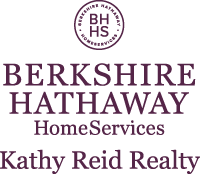|
|
|
Determining A Selling Price
 |
|
Market-sensitive pricing can be the key to maximum market exposure and, ultimately, a satisfactory sale. The existing pool of prospective buyers determines a property's value, based on:
- Location, design, amenities and condition
- Availability of comparable, competing properties
- Economic conditions that affect real property transactions
Factors that have little or no influence on the market value of a house include:
- The price the seller originally paid for the property.
- The seller's expected net proceeds.
- The amount spent on improvements.
The impact of accurate pricing is that:
- Properties price within market range generate more showings and offers, while selling in shorter period of time.
- Properties priced too high have a difficult time selling.
An impartial evaluation of market activity is the most effective way to estimate a property's potential selling price. A comparative market analysis considers similar properties that:
- Have sold in the recent past: this shows us what buyers in this market have actually paid for properties similar to yours
- Are currently on the market: these are properties that will be competing with yours for the attention of available buyers
- Failed to sell: understanding why these properties did not sell can help avoid disappointment in the marketing of your property
The danger of overpricing a property beyond the market range can adversely affect the marketing of a property:
- Fewer buyers are attracted, and fewer offers received.
- Marketing time is prolonged, and initial marketing momentum is lost.
- The property attracts "lookers" and helps competing houses look better by comparison.
- If a property does sell above true market value, it may not appraise properly, and the buyers may not be able to secure a loan.
- The property may eventually sell below market value.
When determining the percentage of buyers who will view a property looking at the asking price in relationship to the fair market value, statistics show that if a property is priced:
- 10% over the fair market value: it will be viewed by only 2% of prospective buyers.
- 5% over fair market value: it will be viewed by 30% of prospective buyers.
- At fair market value: it will be viewed by 60% of prospective buyers.
- 5% under fair market value: it will be viewed by 80% of prospective buyers.
- 10% under fair market value: it will be viewed by 92% of prospective buyers.
Your home is a huge investment, and although it has tremendous value to you, it may not have the same value to the prospective buyers in relation to other similar properties on the market. We can help you through the process to help determine the selling price for your home.
|

|
|
Berkshire Hathaway HomeServices does not endorse any of the products or vendors, referenced on this material.
Any mention of vendors, products, or services is for informational purposes only.
©2024 BHH Affiliates, LLC. An independently owned and operated franchisee of BHH Affiliates, LLC. Berkshire Hathaway HomeServices and the Berkshire Hathaway HomeServices symbol are registered service marks of Columbia Insurance Company, a Berkshire Hathaway affiliate. Equal Housing Opportunity.
Member of: Berkshire Hathaway HomeServices Kathy Reid Realty, (330) 650-2600


